Pupils
Creative and Performing Arts: Dance
Course Information
| Literacy | **** |
| Numeracy | ***** |
| Communications | *** |
| Creativity | *** |
| Practical | *** |
| Group Work | *** |
| Examination Assessment | 100% |
| Non Examination Assessment | 0% |
| EBacc | x |
| Examination Board | RSL |
| Course | Level 1/2 |
General Information
Dance is fundamental for developing an individual’s creative, imaginative, physical, emotional and intellectual capacities. The study of Dance contributes to pupils’ aesthetic and social development as it promotes fitness and wellbeing. During the course, pupils will improve their confidence, self-esteem, body awareness, sensitivity to others and team work. Effective performance requires the candidate being able to dance in front of an audience in both solo, duo and group work. It also requires physical effort and the determination to succeed and improve. Pupils will be required to take on the role of a choreographer where they will need to employ the skills of creativity and problem solving. They will have to direct others and make informed decisions about the dances they see. This qualification also provides a route to studies in further and higher education in Dance or Performing Arts, as well as vocational or professional training and community activities.
Pupils will learn techniques and practices as well as explore professional performance pieces from a variety of different dance styles from Ballet & Contemporary to Hip-Hop and Jazz. They be expected to choreograph dances using a stimulus and respond to a performance brief in order to create a workshop performance. Pupils will perform in front of their peers and wider audiences to help improve their confidence and performance skills. There is a great deal of practical work which requires a high level of commitment to the course as well as theoretical elements for each component.
What will I need to succeed?
Successful candidates will require:
- The confidence to perform different Dance styles in front of an audience.
- The maturity to wear correct Dance clothing and the ability to conduct themselves in a manner similar to that of a professional;
- Creativity and imagination when taking on the role of a choreographer;
- Leadership skills in order to teach Dance ideas to others;
- It is recommended to have Dance experience outside of school in order to access the practical and technical criteria.
Subject Content
Expected Assessment Requirements (Unclassified – Distinction *)
This is the equivalent of a full GCSE course offering a range of grades from Pass, Merit, Distinction to Distinction *. A Pass grade at BTEC is equivalent to a level 4 pass on the GCSE grading system. If pupils do not meet the level 2 requirement they will automatically be assessed for the Level 1 (Foundation level)
Assessment is broken down into the following areas:
Dance Pathway
The qualification comprises of 3 components. There is no formal written exam but all components contain a portfolio of evidence which must be submitted.
| Internal Component 1 | Exploring the Performing Arts |
| Internal Component 2 | Developing Skills and Techniques in the Performing Arts |
| External Component 3 | Responding to a Brief |
Component 1: Exploring the Performing Arts – developing an understanding of the performing arts including practitioners’ work and the processes used to create performance.
Component 2: Developing Skills and Techniques in the Performing Arts – development of performing arts skills and techniques through the reproduction of dance repertoire as performers or designers.
Component 3: Responding to a Brief – contributing to a workshop performance as either a performer or designer in response to a given brief and stimulus.
The subject content will include both practical and theoretical lessons. Pupils are awarded a grade from Pass to Distinction *. A pass grade is the equivalent of a level 4 pass for a GCSE.
FAQs
Is a Level 2 Qualification the equivalent of a GCSE?
Yes. A GCSE is also level 2 qualification. A Btec award Certificate is recognised at the same level as the GCSE. It just goes by a different name.
Will colleges recognise the qualification?
Yes they will. Colleges also offer courses that don’t carry the traditional A-Level moniker, so will be familiar with a variety of Level 2 courses that do not carry the GCSE name.
Why change from the GCSE?
The Btec Award offers a more practical approach to the study of Dance and movement than the current GCSE specification. Whilst there is still a theory element to the Btec Award course it is not as heavily weighted in favour of the theory as the GCSE (which is 40% in total). Pupils can focus more on the practical study of a practical subject.
What careers it can lead to after leaving Swanmore College
Using your practical experience combined with your in-depth theoretical research, you will be adequately prepared to study a higher course at college. Studying Dance can lead to job roles such as a Dancer, Choreographer, Dance practitioner, Dance journalist, Dance therapist, physio therapist, Dance teacher and many more.
